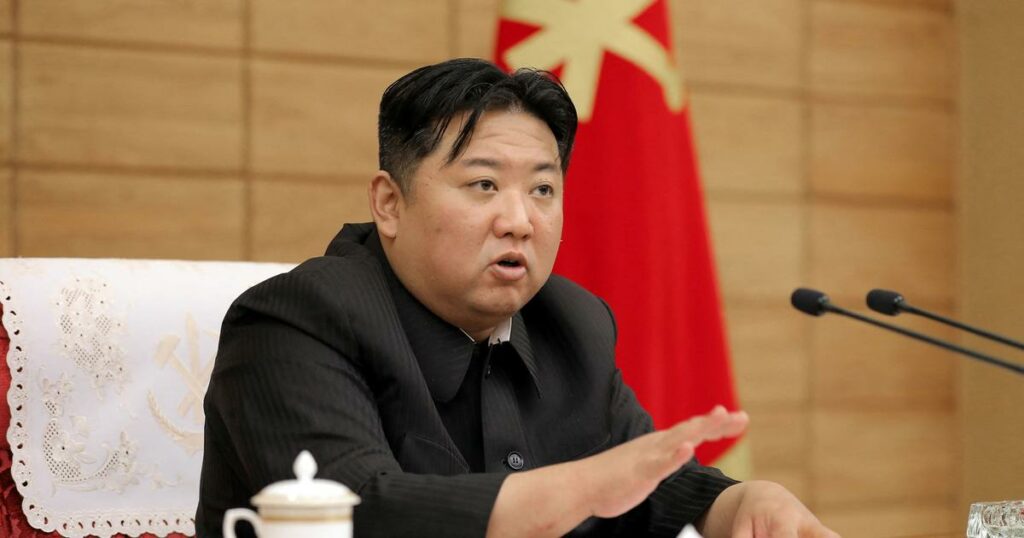Chinese and Russians have vetoed a US resolution to impose sanctions on Pyongyang after new ballistic missile strikes.
China and Russia on Thursday May 26 vetoed in the UN Security Council a United States resolution imposing new sanctions on North Korea for its ballistic missile launches, vividly displaying the division of the instance at the risk of allowing Pyongyang to benefit from it. The 13 other members of the Council voted in favor of the text which provided in particular for a reduction in imports of crude and refined oil by Pyongyang.
Read alsoNorth Korea: Kim Jong-un caught by Omicron
Behind the scenes, several Washington allies lamented the US insistence on holding a vote knowing that China and Russia would use their vetoes. For Americans, doing nothing was « worse than the scenario of two countries blocking the resolution“, explained an ambassador on condition of anonymity.
Since 2017, when the Council unanimously adopted three sets of heavy sanctions, « the Council’s restraint and silence have not eliminated or even reduced the threat“, underlined the American ambassador to the UN, Linda Thomas-Greenfield, justifying her approach. « On the contrary, North Korea has been emboldened by the inaction of this Council“, she estimated.
His Chinese counterpart, Zhang Jun, in a tense exchange with the American diplomat, accused the United States of having wanted a « failure» and to have «distanced the Council from dialogue and conciliation« . « The crux of the problem« , he said, « is whether they want to use the Korean Peninsula dossier for their so-called Indo-Pacific strategy« . Before the vote, he told reporters that he disagreed « total« from Beijing »to any attempt to make (…) of Asia a battlefield or to create clashes or tensions there« .
Zhang Jun called on the United States to « work to promote a political solution“, claiming that new sanctions would have had humanitarian consequences in North Korea, recently tested by multiple cases of Covid.
Russia’s UN ambassador Vassily Nebenzia accused the US of ignoring Pyongyang’s calls to end its « hostile activities« . « It seems that our American and Western colleagues suffer from the equivalent of writer’s block. They seem to have no response to crisis situations other than introducing new sanctions« , did he declare.
Nuclear test feared
The American draft resolution also planned to ban North Korean exports of mineral fuels, watches and clocks, and any sale or transfer to Pyongyang of tobacco. The text also aimed to increase the fight against Pyongyang’s cyber activities.
After the rejection of this project and a clear display of the division of the UN Security Council on the North Korean file, this body may find it difficult to maintain the pressure to apply the sanctions decided in 2017, fear diplomats. At the time, multiple sectoral and individual measures had been taken against North Korea in the fields of oil, coal, iron, fishing and textiles.
If the North Koreans have developed their ballistic armament and have several atomic bombs, they have not yet succeeded, according to diplomats, in combining the two technologies in order to have a missile with a nuclear head. North Korea fired new missiles this week, including probably its largest intercontinental ballistic missile, shortly after a visit to Asia by US President Joe Biden.
At the UN, the United Kingdom, France and South Korea expressed their fears that North Korea would carry out a seventh nuclear test, announced as imminent, which would be its first in five years. By regrettingdeeply » a vote « which marks the division of the Council« , the French ambassador, Nicolas de Rivière, judged that the use of the veto « amounted to protecting the North Korean regime and giving it a blank check to proliferate even further« .
Under a new procedure recently adopted at the initiative of Liechtenstein, China and Russia should soon have to explain to the United Nations General Assembly why they used their veto on Thursday.
SEE ALSO – North Korea: the United States and South Korea « ready to face »
.

